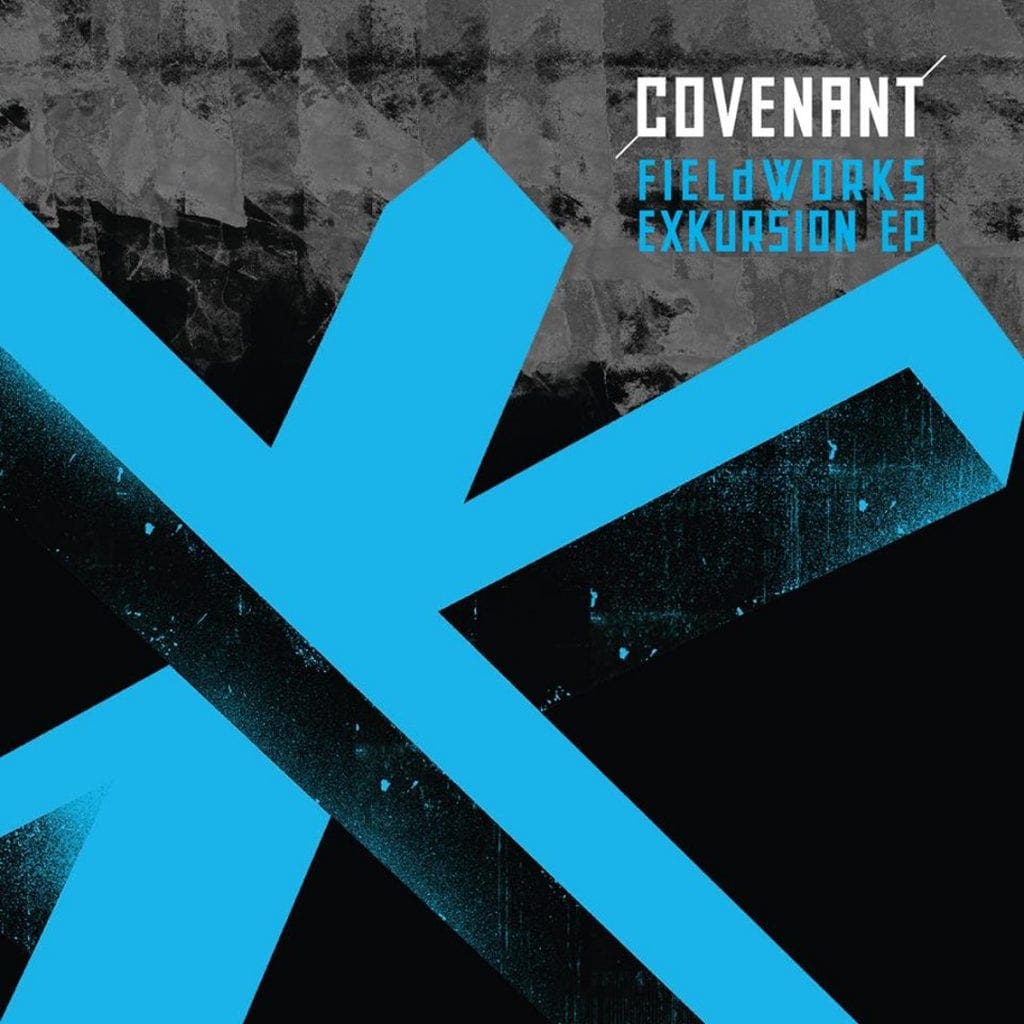New Covenant EP ‘Fieldworks: Exkursion’ recorded using field recordings (what else?)

The Swedish electropop act Covenant has a new EP, “Fieldworks”, of unexpected sounds collected over time and woven into tracks. The sounds consists of field recordings of great and small things from tours across six continents, mixed with the everyday noise of living.
Aptly titled “Fieldworks: Exkursion” it will be available for digital download on April 1 (it better won’t be a joke then).
The EP is the first release of an upcoming cycle of records attributed to the theme “Fieldworks”, it also features one track written by each member of the band and a strong collaboration with French electro-industrial newcomer Grabyourface.
In the below video Covenant’s Joakim gives a quick insight into the text for “All That Is Solid Melts Into Air” (from the “Fieldworks: Exkursion” EP) plus some clips from the show at der ANKER in Leipzig.
Tracklist
- Pantheon (Lyrics by Montelius, Music by Montelius)
- All That Is Solid Melts Into Air (Lyrics by Montelius, Music by Simonsson*
- False Gods (ft grabyourface) (Lyrics by Marie Lando, Music by Myer, Simonsson)
- Popol Vuh (Traditional, Music by Jonasson)
- Das Nibelungenlied (I. Abenteuer) (Traditional, Music by Catjar)
Song by song background
“Pantheon”
Derived from a field recording made by Joakim Montelius in Rome, May 2014. This is his story: “I had spent the day walking around Rome and came down from the Spanish steps as darkness fell, arriving at the Pantheon just before closing time. So I went inside this marvelous building thinking about how it was once a temple to ALL gods, in the tolerant spirit of the ancient Romans, only to be monopolised and “purged” by the Christian Church and consecrated to the only god it allowed. In the ceiling of its mighty dome, for many centuries the largest unsupported dome on this planet, the empty eye of the Oculus offered a glimpse of the stars above and I suddenly felt very sad. I felt the weight of the ages on my shoulders and the absence of all the wonders of the human imagination, swept away by intolerance and thirst for power, over and over again.”
“This melancholy always hits me when I’m in Rome because the city is so steeped in history and it’s like being in a freaked out time machine, jumping wildly through time, leaving you dizzy and disoriented. But there are few places where it’s more present than in the Pantheon. And while I was standing there, lost in my thoughts, they closed it for the day. I quickly got out my phone and managed to record the speaker voice announcing that the Pantheon is now closed, kindly asking us to leave. And that felt so symbolic that I immediately sat down outside to write down the lyrics.”
“All That Is Solid Melts Into Air”
Video of Joakim Montelius talking about the impetus of this song: “The title is a quote from Karl Marx and also the title of an academic text by Marshall Berman from the 1970s, in which he deals with social and economic modernization and the contrasting relationship to modernity. The second part of the song borrows from Romanticist poet Percy Bysshe Shelley (1792-1822): “all that is solid melts into air, for its very name has grown to an echo all your own.” “
“False Gods”
Intense, hard, hammering song collaboration between band member Daniel Myers and French electro artist Marie Lando, aka Grabyourface.
“Popol Vuh”
Band member Daniel Jonasson crafted “Popol Vuh” borrowing from the homonymous Holy Book of the Quiché-Maya in Guatemala. To subtle tribal-like sounds, Simonsson recites lines from an English translation of this “book of advice” that tells the mythology of the Maya, the creation of the world, the people of the gods, the emergence of languages, cults, and rituals. “A quiet, withdrawn track that takes you a long way back in the history of humanity.”
“Das Nibelungenlied”
Band member Andreas Catjar’s contribution, “The Nibelungenlied (1st Adventure),” fits in with his work last year at the Staatstheater Mainz, where he was responsible for the music in the Nibelungen production (the Friedrich Hebbel version) by Jan-Christoph Gockel. Nearly seven minutes long, this lengthier track features a spoken recitation by Eskil Simonsson.
Since you’re here …
… we have a small favour to ask. More people are reading Side-Line Magazine than ever but advertising revenues across the media are falling fast. Unlike many news organisations, we haven’t put up a paywall – we want to keep our journalism as open as we can - and we refuse to add annoying advertising. So you can see why we need to ask for your help.
Side-Line’s independent journalism takes a lot of time, money and hard work to produce. But we do it because we want to push the artists we like and who are equally fighting to survive.
If everyone who reads our reporting, who likes it, helps fund it, our future would be much more secure. For as little as 5 US$, you can support Side-Line Magazine – and it only takes a minute. Thank you.
The donations are safely powered by Paypal.












